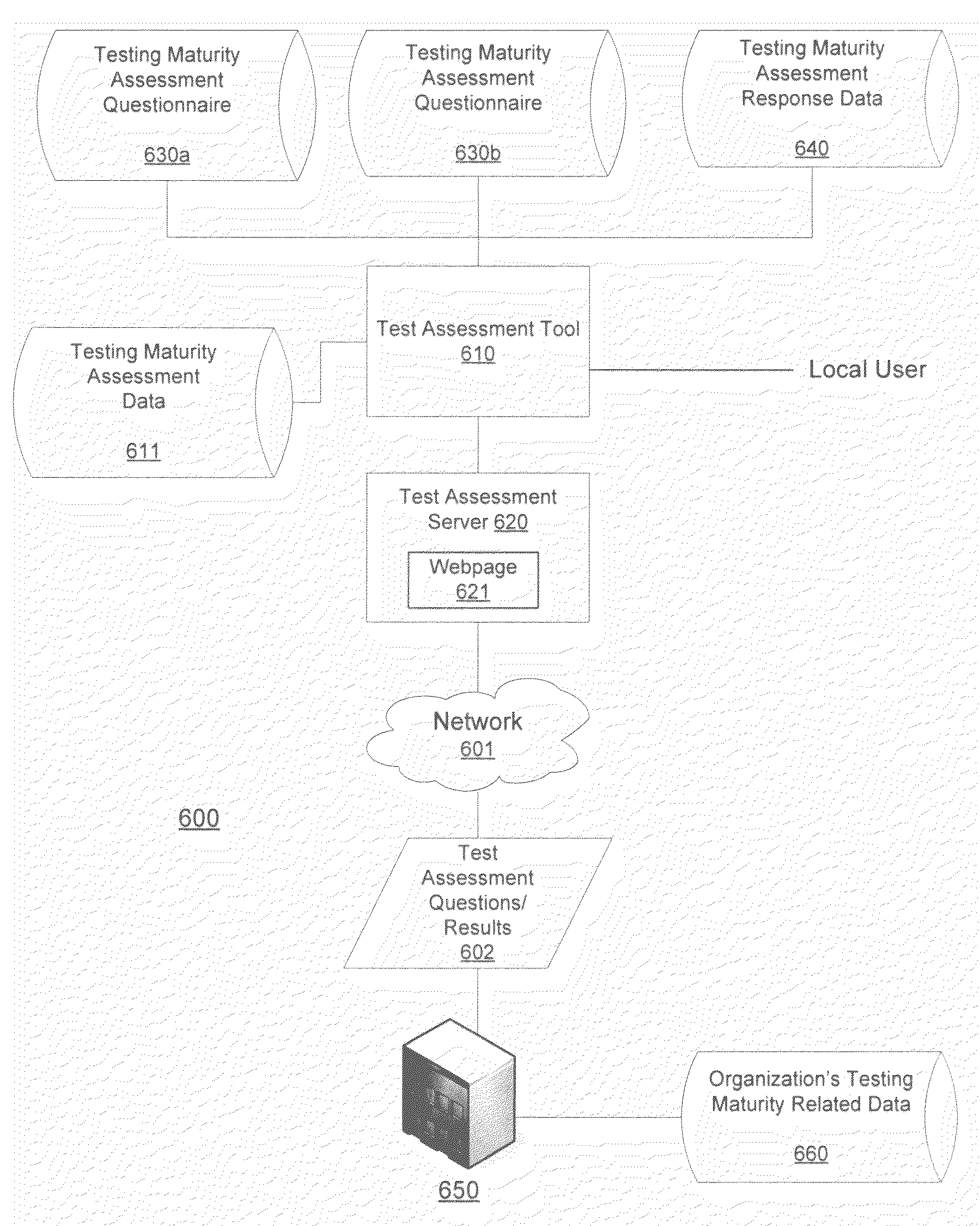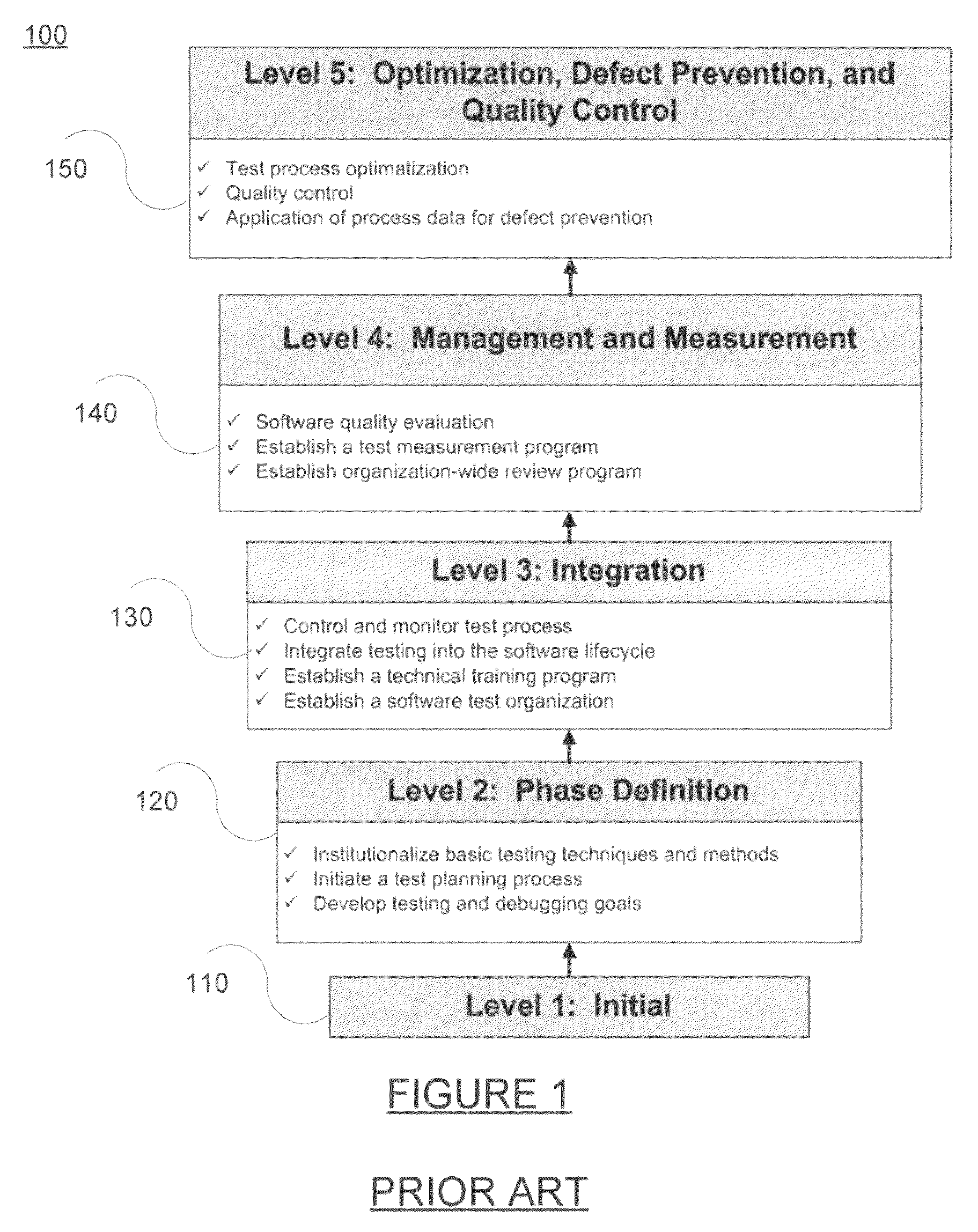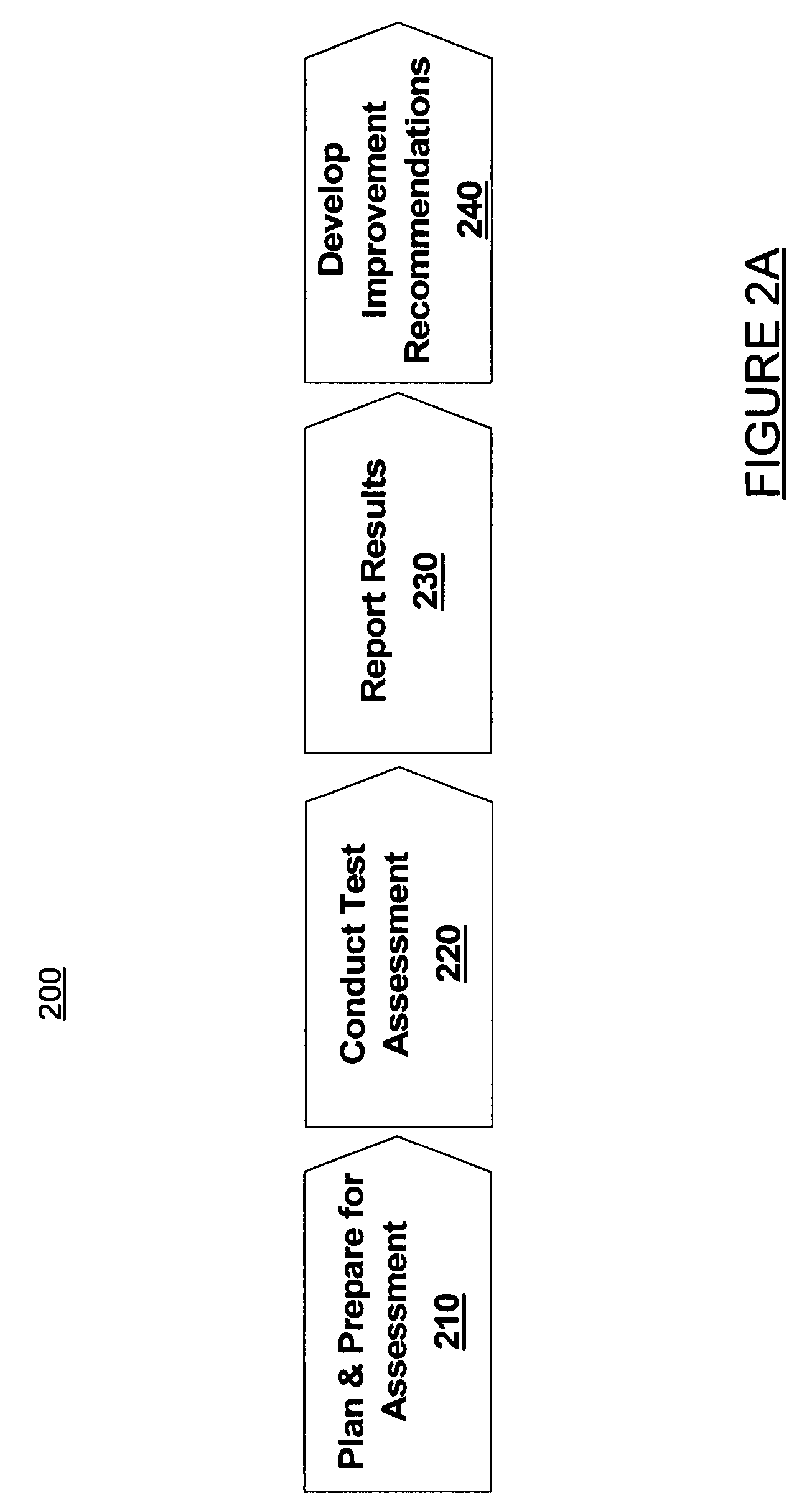Software testing capability assessment framework
a software testing and capability assessment technology, applied in the field of automatic method and system for evaluating the maturity of an organization's testing capabilities, can solve the problems of insufficiently addressing testing problems, unable to realize the full potential of testing processes, and not using process improvement models currently availabl
- Summary
- Abstract
- Description
- Claims
- Application Information
AI Technical Summary
Benefits of technology
Problems solved by technology
Method used
Image
Examples
Embodiment Construction
[0032]As depicted in the figures and as described herein, the present invention provides an improved method and system for evaluating an organization's testing maturity capabilities.
[0033]Turning now to FIG. 2A, embodiments of the present invention provide a testing maturity assessment method 200. The testing maturity assessment method 200 begins with a planning and preparing for assessment step 210 which generally includes developing an assessment plan, selecting and preparing an assessing individual or team, and then obtaining and rearea relevant evidence, such as conducting interareas. As described in greater detail below, these sub-processes may be performed manually or using automated tools. The testing maturity assessment method 200 continues with conducting a testing assessment in step 220 using the data collected in step 210. Specifically, the conducting of a testing assessment in step 220 generally includes verifying and validating the evidence, and then examining the evide...
PUM
 Login to View More
Login to View More Abstract
Description
Claims
Application Information
 Login to View More
Login to View More - R&D
- Intellectual Property
- Life Sciences
- Materials
- Tech Scout
- Unparalleled Data Quality
- Higher Quality Content
- 60% Fewer Hallucinations
Browse by: Latest US Patents, China's latest patents, Technical Efficacy Thesaurus, Application Domain, Technology Topic, Popular Technical Reports.
© 2025 PatSnap. All rights reserved.Legal|Privacy policy|Modern Slavery Act Transparency Statement|Sitemap|About US| Contact US: help@patsnap.com



